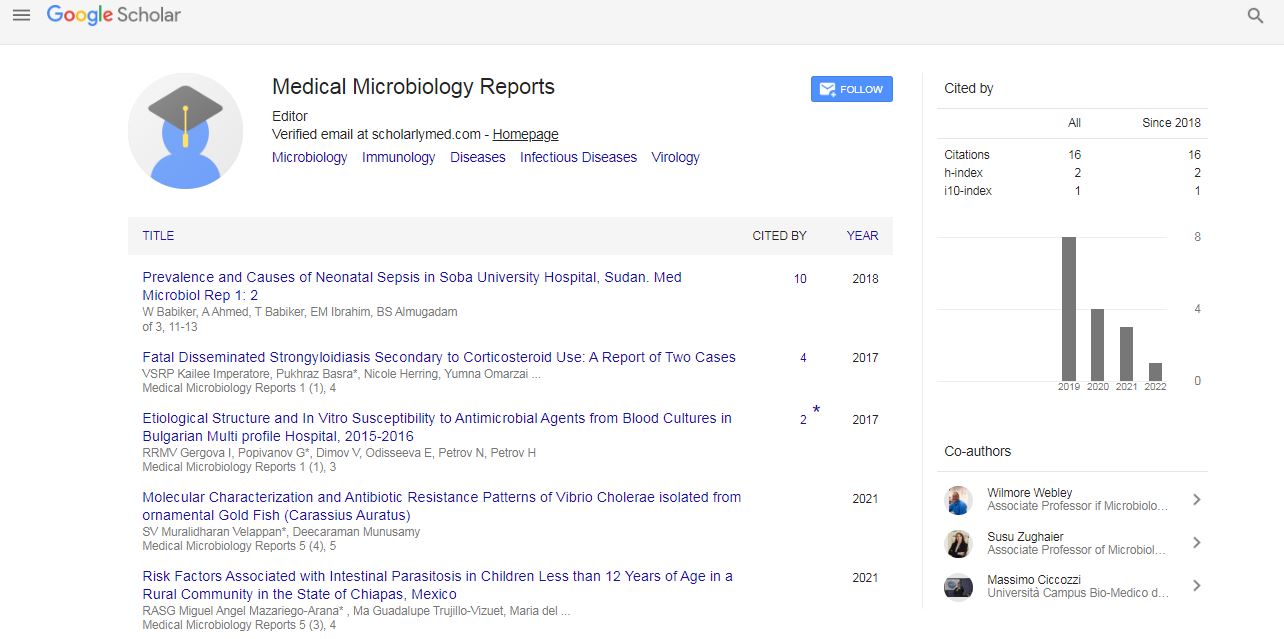Development of gluten reduced wheat product using indigenous lactic acid bacteria for Celiac disease
Devaraja Gayathri
Devangere University, India
: Med Microbiol Rep
Abstract
Probiotics are increasingly being used as nutraceuticals, functional foods or in microbial interference treatment. Probiotics have also been suggested for the development of gluten reduced wheat foods for celiac disease prone patients conferring overall intestinal health in addition to alleviating the burden of gluten intolerance. Exploring new indigenous gluten hydrolyzing bacteria from wheat sourdough and curd samples was felt beneficial in fulfilling the aim of the present study to develop gluten reduced wheat foods using potential indigenous probiotics. In the present study, the gluten hydrolyzing bacteria isolated from wheat sourdough as well as curd samples have been screened for their probiotic potentiality. In vitro studies using Caco-2 cells revealed adhesion and prevention of pathogen invasion abilities of all the tested strains. Further, none of the tested isolates exhibited antibiotic resistance and hemolytic activity. However, the isolates could survive gastric transit, auto aggregate and exhibited good co-aggregation as well as antimicrobial properties. All these characteristics of gluten hydrolyzing bacterial isolates GS 33, GS 143, GS 181 and GS 188 belonged to Bacillus spp. suggesting their ability to survive upper gastrointestinal stress and to adhere GI tract establishing barrier against pathogens, conferring health benefit to the host and therefore, they could be promising gluten hydrolyzing probiotic candidate. Further, hydrolysis of celiac epitope derived tripeptides indicated the potentiality of the tested isolates to cleave immunogenic peptides and thereby reduce immunogenicity and it was further confirmed by LC MS/MS analysis. The results indicated that multiple epitopes in gliadins would be targeted by the tested isolates, credibly destroying their gliadin specific T cell inducing activities. While the human digestive enzymes are unable to reduce gluten immunogenicity, the tested Bacillus spp. indigenous to wheat were showed promising gluten hydrolysis. Therefore, the indigenous Bacillus spp. chosen in the present study perhaps be a competitive, safe and promising gluten hydrolyzing candidate.
Biography
E-mail: gayathridevaraja@gmail.com
 Spanish
Spanish  Chinese
Chinese  Russian
Russian  German
German  French
French  Japanese
Japanese  Portuguese
Portuguese  Hindi
Hindi 
